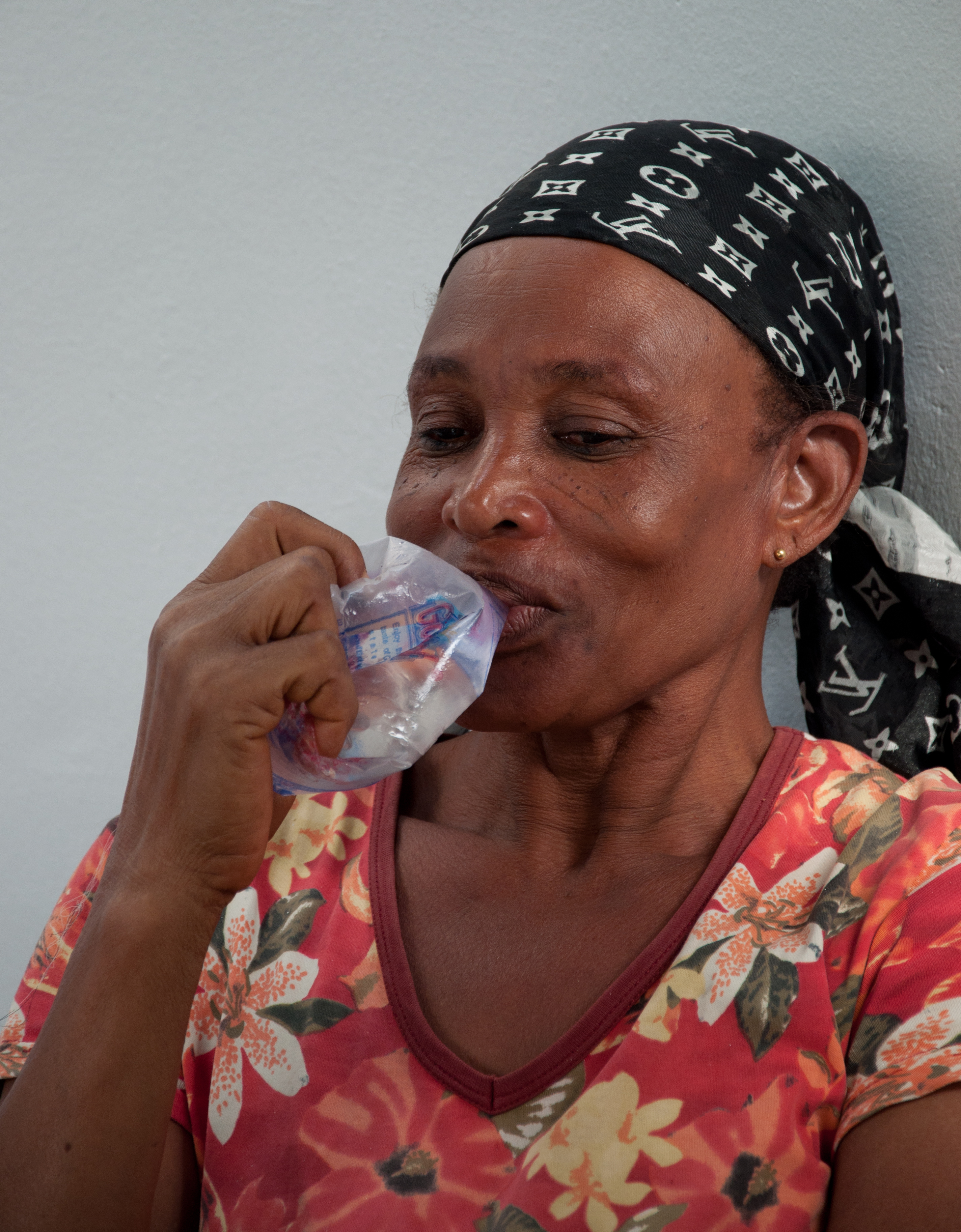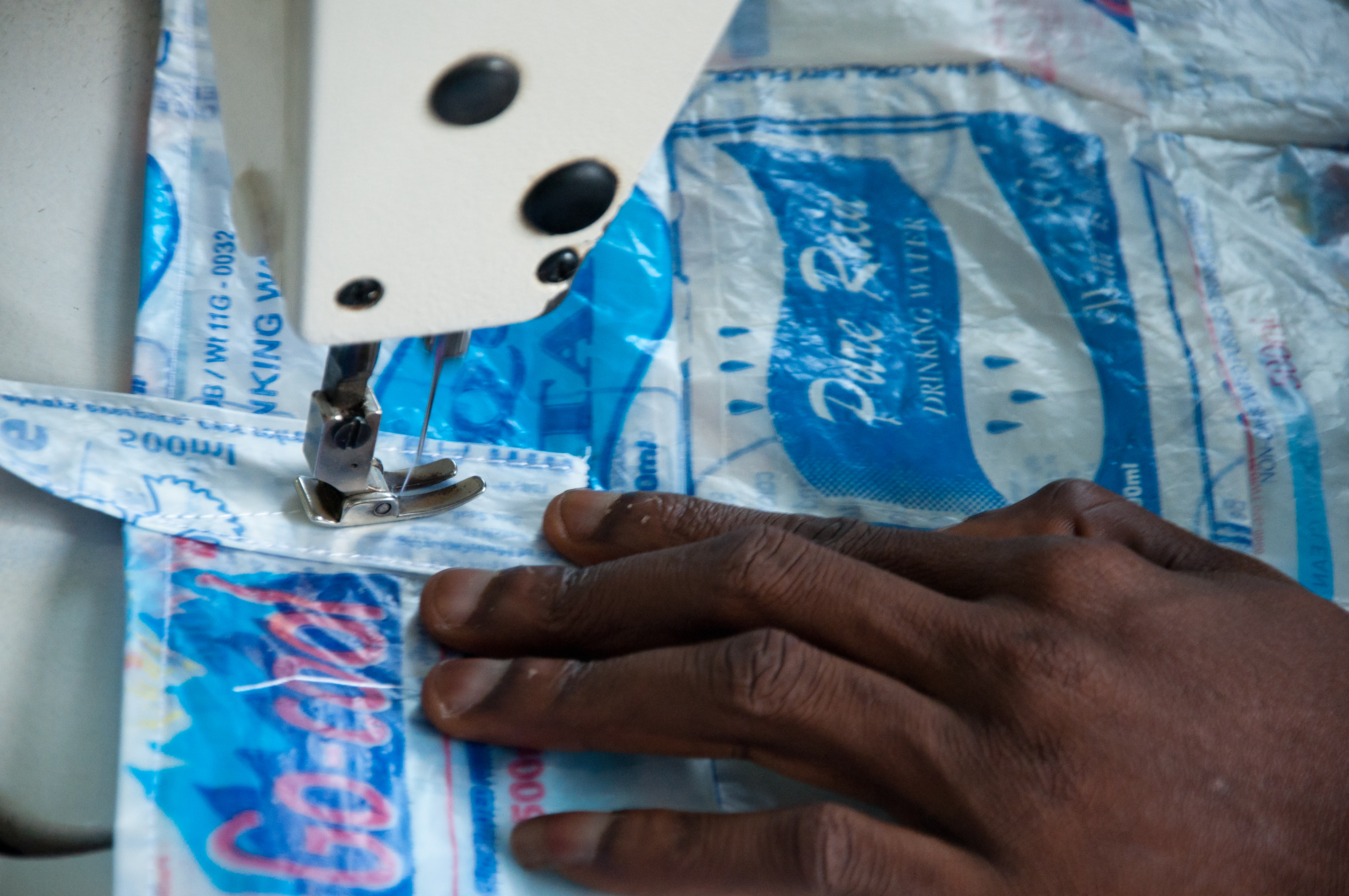Water Sachet on:
[Wikipedia]
[Google]
[Amazon]
 Water sachets or sachet water is a common form of selling pre-filtered or sanitized water in plastic, heat sealed bags in parts of the global south, and are especially popular in
Water sachets or sachet water is a common form of selling pre-filtered or sanitized water in plastic, heat sealed bags in parts of the global south, and are especially popular in
 Studies of sachets frequently find improper sanitary conditions among sachet producers. One study of sachets in
Studies of sachets frequently find improper sanitary conditions among sachet producers. One study of sachets in

 Sachet water is common through Ghana. A 2012 review of sachet use in Ghana found sachet water ubiquitous especially in poorer communities. Sachets were typically 500 ml
Sachet water is common through Ghana. A 2012 review of sachet use in Ghana found sachet water ubiquitous especially in poorer communities. Sachets were typically 500 ml
 Sachet water has become increasingly important part of the water access in Nigeria, especially fast growing cities like Lagos. The cost of Sachet water is dependent on economic changes. In 2021, the Association for Table Water Producers of Nigeria increased the price of bag of sachet water to 200 naira due to increase in production cost. A significant devaluation of local currency led to significant price increases in 2022.
In 2024, sachet water currently sells for N50 per sachet. A bag sells between N400 and N500, the increase is due to changes in the economy. Some cities have started selling ice water because some can not afford to buy sachet water.
Around June, 2024 two water companies were closed in Owerri by National Agency for Food Drugs Administration and Control (NAFDAC) due to poor manufacturing process and unhygienic production. The two factories including Elmabo Table Water and Sylchap Table Water while Giver Table water was cautioned for minor issues.
Sachet water has become increasingly important part of the water access in Nigeria, especially fast growing cities like Lagos. The cost of Sachet water is dependent on economic changes. In 2021, the Association for Table Water Producers of Nigeria increased the price of bag of sachet water to 200 naira due to increase in production cost. A significant devaluation of local currency led to significant price increases in 2022.
In 2024, sachet water currently sells for N50 per sachet. A bag sells between N400 and N500, the increase is due to changes in the economy. Some cities have started selling ice water because some can not afford to buy sachet water.
Around June, 2024 two water companies were closed in Owerri by National Agency for Food Drugs Administration and Control (NAFDAC) due to poor manufacturing process and unhygienic production. The two factories including Elmabo Table Water and Sylchap Table Water while Giver Table water was cautioned for minor issues.
 Water sachets or sachet water is a common form of selling pre-filtered or sanitized water in plastic, heat sealed bags in parts of the global south, and are especially popular in
Water sachets or sachet water is a common form of selling pre-filtered or sanitized water in plastic, heat sealed bags in parts of the global south, and are especially popular in Africa
Africa is the world's second-largest and second-most populous continent after Asia. At about 30.3 million km2 (11.7 million square miles) including adjacent islands, it covers 20% of Earth's land area and 6% of its total surfac ...
. Water sachets are cheaper to produce than plastic bottle
A plastic bottle is a bottle constructed from high-density or low density plastic. Plastic bottles are typically used to store liquids such as water, soft drinks, motor oil, cooking oil, medicine, shampoo or milk. They range in sizes, from very ...
s, and easier to transport. In some countries, water vendors refer to sachet water as "pure water".
High demand, and poor collection of waste from consumer
A consumer is a person or a group who intends to order, or use purchased goods, products, or services primarily for personal, social, family, household and similar needs, who is not directly related to entrepreneurial or business activities. ...
s, has resulted in significant plastic pollution
Plastic pollution is the accumulation of plastic objects and particles (e.g. plastic bottles, bags and microbeads) in the Earth's environment that adversely affects humans, wildlife and their habitat. Plastics that act as pollutants are catego ...
and waste from sachets throughout the West Africa
West Africa, also known as Western Africa, is the westernmost region of Africa. The United Nations geoscheme for Africa#Western Africa, United Nations defines Western Africa as the 16 countries of Benin, Burkina Faso, Cape Verde, The Gambia, Gha ...
. Accumulation of sachets frequently causes blocked stormwater drainage, and other issues. Some countries, such as Senegal
Senegal, officially the Republic of Senegal, is the westernmost country in West Africa, situated on the Atlantic Ocean coastline. It borders Mauritania to Mauritania–Senegal border, the north, Mali to Mali–Senegal border, the east, Guinea t ...
, have banned disposable sachets.
Because sachets are frequently filled in small and often unregulated facilities, inadequate sanitary conditions can occasionally result in disease or contamination. However, in countries like Ghana
Ghana, officially the Republic of Ghana, is a country in West Africa. It is situated along the Gulf of Guinea and the Atlantic Ocean to the south, and shares borders with Côte d’Ivoire to the west, Burkina Faso to the north, and Togo to t ...
consumers still prefer that access over other forms of venders, with a perception of lower risk. This form of water distribution provides vital access to water in communities that otherwise would not have it. However, some scholars have identified this method of distribution as having potential human rights and social justice issues, limiting the right to water and sanitation.
Health concerns
 Studies of sachets frequently find improper sanitary conditions among sachet producers. One study of sachets in
Studies of sachets frequently find improper sanitary conditions among sachet producers. One study of sachets in Port Harcourt, Nigeria
Port Harcourt (Pidgin: ''Po-ta-kot or Pi-ta-kwa)'' is the capital and largest city of Rivers State in Nigeria. It is the fifth most populous city in Nigeria after Lagos, Kano, Ibadan and Benin. It lies along the Bonny River and is located i ...
found that sachet water has significant contamination from various disease causing microbes. Prolonged storage of the sachets found human-health threatening levels of the microbes after 4 months in several of the samples. Similarly following the onset of the COVID
Coronavirus disease 2019 (COVID-19) is a contagious disease caused by the coronavirus SARS-CoV-2. In January 2020, the disease spread worldwide, resulting in the COVID-19 pandemic.
The symptoms of COVID‑19 can vary but often include fever ...
pandemic, in Damongo
Damongo is a town and the capital of West Gonja Municipal. It was declared the capital of the Savannah Region on 12 February 2019. Damongo is home to Bikunuto Jewu Soale I, the paramount chief of the Gonja Kingdom. The languages spoken in D ...
found 96% of producers didn't have adequate sanitary measures.
By country
Ghana

 Sachet water is common through Ghana. A 2012 review of sachet use in Ghana found sachet water ubiquitous especially in poorer communities. Sachets were typically 500 ml
Sachet water is common through Ghana. A 2012 review of sachet use in Ghana found sachet water ubiquitous especially in poorer communities. Sachets were typically 500 ml polyethylene
Polyethylene or polythene (abbreviated PE; IUPAC name polyethene or poly(methylene)) is the most commonly produced plastic. It is a polymer, primarily used for packaging (plastic bags, plastic films, geomembranes and containers including bott ...
bags, and heat sealed at each end. Sachet water delivery is part of a larger trend in delivery by private water vendors from municipal taps.
Packaging water in small plastic bags started in the 1990s, and that practice grew after the introduction of Chinese machines for filling and heat sealing bags. A price increase in 2022, saw significant changes in the sales in the Ashanti region
The Ashanti Region is located in the southern part of Ghana and is the third largest of Regions of Ghana, 16 administrative regions, occupying a total land surface of and making up 10.2 percent of the total land area of Ghana. It is the List of ...
.
Nigeria
 Sachet water has become increasingly important part of the water access in Nigeria, especially fast growing cities like Lagos. The cost of Sachet water is dependent on economic changes. In 2021, the Association for Table Water Producers of Nigeria increased the price of bag of sachet water to 200 naira due to increase in production cost. A significant devaluation of local currency led to significant price increases in 2022.
In 2024, sachet water currently sells for N50 per sachet. A bag sells between N400 and N500, the increase is due to changes in the economy. Some cities have started selling ice water because some can not afford to buy sachet water.
Around June, 2024 two water companies were closed in Owerri by National Agency for Food Drugs Administration and Control (NAFDAC) due to poor manufacturing process and unhygienic production. The two factories including Elmabo Table Water and Sylchap Table Water while Giver Table water was cautioned for minor issues.
Sachet water has become increasingly important part of the water access in Nigeria, especially fast growing cities like Lagos. The cost of Sachet water is dependent on economic changes. In 2021, the Association for Table Water Producers of Nigeria increased the price of bag of sachet water to 200 naira due to increase in production cost. A significant devaluation of local currency led to significant price increases in 2022.
In 2024, sachet water currently sells for N50 per sachet. A bag sells between N400 and N500, the increase is due to changes in the economy. Some cities have started selling ice water because some can not afford to buy sachet water.
Around June, 2024 two water companies were closed in Owerri by National Agency for Food Drugs Administration and Control (NAFDAC) due to poor manufacturing process and unhygienic production. The two factories including Elmabo Table Water and Sylchap Table Water while Giver Table water was cautioned for minor issues.
See also
*Drinking water
Drinking water or potable water is water that is safe for ingestion, either when drunk directly in liquid form or consumed indirectly through food preparation. It is often (but not always) supplied through taps, in which case it is also calle ...
*Purified water
Purified water is water that has been mechanically filtered or processed to remove impurities and make it suitable for use. Distilled water was, formerly, the most common form of purified water, but, in recent years, water is more frequently pu ...
*Self-supply of water and sanitation
Self-supply of water and sanitation (also called household-led water supply or individual supply) refers to an approach of incremental improvements to Water supply, water and sanitation services, which are mainly financed by the user. People arou ...
*WASH
Wash or the Wash may refer to:
Industry and sanitation
* WASH or WaSH, "water, sanitation and hygiene", three related public health issues
* Wash (distilling), the liquid produced by the fermentation step in the production of distilled beverages
...
– Water supply, sanitation and hygiene
*Water kiosk
Water kiosks are booths for the sale of tap water. They are common in many countries of Sub-Saharan Africa. Water kiosks exist, among other countries, in Cameroon, Haiti, Kenya, Malawi, Mongolia, Tanzania and Zambia.
Description
Water kiosks typi ...
References
{{Reflist Water Plastics Drinks